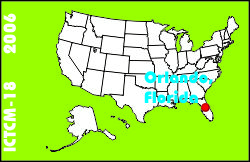
Electronic Proceedings of the Eighteenth Annual International Conference on Technology in Collegiate MathematicsOrlando, Florida, March 16-19, 2006Paper S031
Using Technology to Help Address Different Learning Styles in a College Algebra Classroom |
Laura J. PyzdrowskiInstitute for Math Learning West Virginia University Morgantown, WV 26506 USA lpyzdrow@wvu.edu list of all papers by this author | Melanie B. ButlerInstitute for Math Learning West Virginia University Morgantown, WV 26506 USA mbutler@math.wvu.edu list of all papers by this author | Anthony S. PyzdrowskiMathematics and Computer Science Department California University of Pennsylvania California, PA 15419 USA pyzdrowski@cup.edu list of all papers by this author | Vennessa L. WalkerInstitute for Math Learning West Virginia University Morgantown, WV 26506 USA vwalker1@mix.wvu.edu list of all papers by this author |
| Click to access this paper: |
ABSTRACT
The Institute for Mathematics Learning (IML) at West Virginia University is working to help students succeed in before calculus level courses. College Algebra historically had D, F, Withdrawal (D/F/W) rates that fluctuated between 45% and 55%. With the implementation of such things as interactive laboratories, on-line tests, on-line quizzes, and curriculum reform, the D/F/W rate has dropped to between 35% and 45% within the past five years. Currently, it is an IML goal to stabilize D/F/W rates to 30% while maintaining the integrity and rigor of the course. It is evident that many students who should be able to succeed, do not. In order to address this issue, course coordinators are exploring the learning styles of students in large sectioned college algebra courses to determine how the course components address their needs as well as to find other components that can be developed and implemented which would help them.Keyword(s): college algebra, pedagogy
